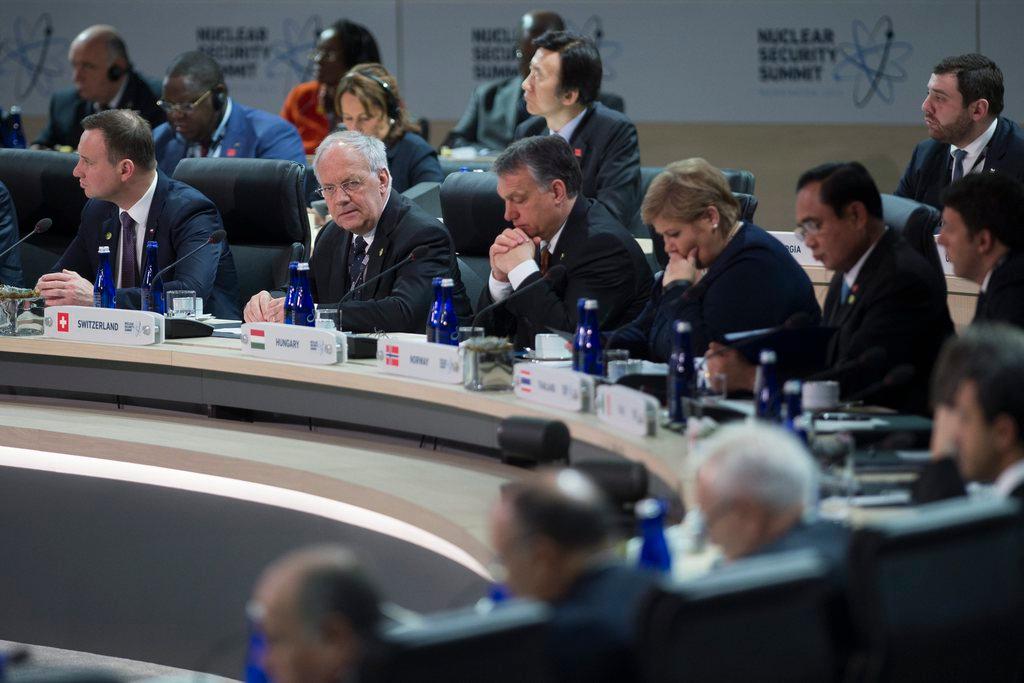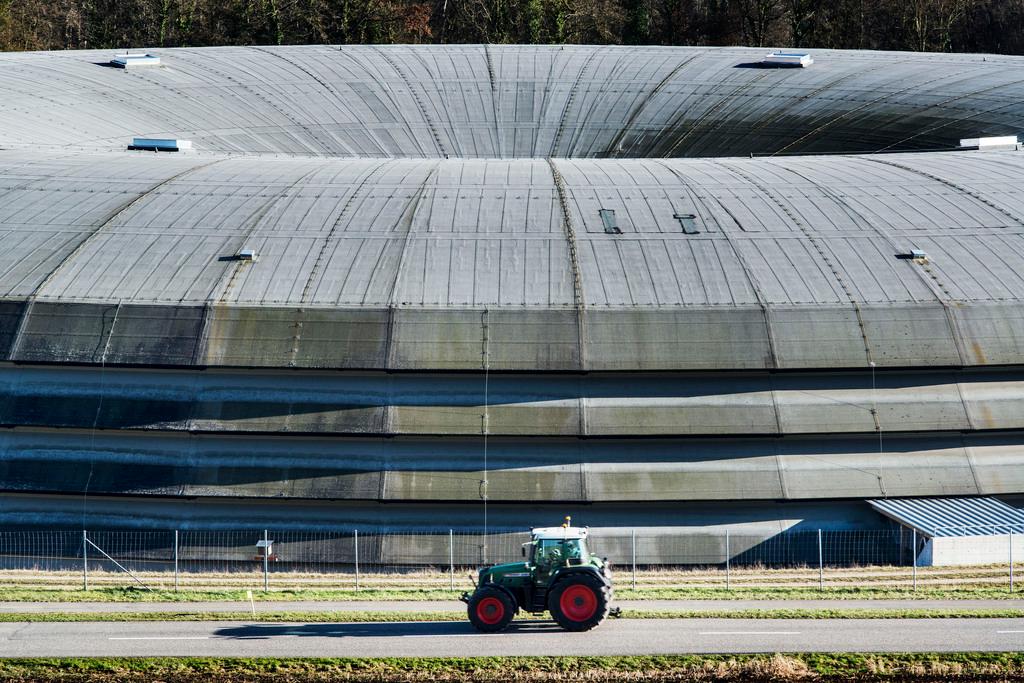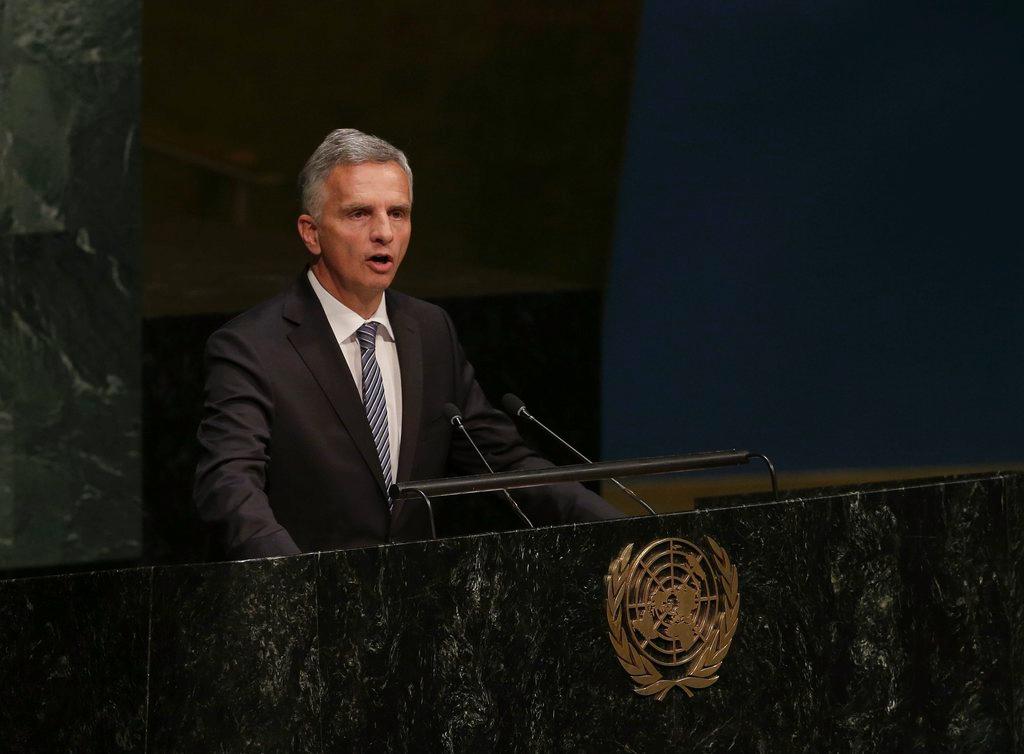Swiss set ‘good example’ over nuclear materials

Switzerland’s president Johann Schneider-Ammann has called for the reduction of atomic stockpiles at a key meeting in Washington. Switzerland is a model in this respect, he said, because it favoured the centralised storage of its nuclear materials.
Schneider-Ammann has been attending a nuclear security summit in WashingtonExternal link, along with more than 50 other world leaders. The two-day meeting, which wrapped up on Friday evening, was hosted by the United States president Barack Obama.
The main discussion point was efforts to lock down vulnerable atomic materials to prevent nuclear terrorism. North Korea’s atomic defiance was also high on the agenda. Russia had refused to attend the summit.
Schneider-AmmannExternal link argued that placing nuclear material at a centralised location made it easier to keep track of and reduce stocks. Switzerland itself recently transferred around 20 kilogrammes of plutonium – property of the government – to the US, as well as more than two kg of highly enriched uranium from the decommissioned research reactor at the University of Basel.
It was the aim of the summit to ensure that atomic material does not fall into the hands of terrorists, he said. But this does not just concern weapons-grade material, less dangerous material must also be secured, as this can be used to make dirty bombs, continued Schneider-Ammann.
Together with its partners, Switzerland fights against
— J N Schneider-Ammann (@_BR_JSA) April 1, 2016External link
nuclear terrorism and smuggling of nuclear material #NSS2016External link pic.twitter.com/rnR9Z3sEdIExternal link
Need to do more
The Swiss president told reporters that he had also called for further worldwide nuclear disarmament as “this promotes nuclear security”.
As the summit closed, world leaders reaffirmed their commitment to fight proliferation. The meeting was the fourth and final summit in a process initiated by Obama in 2010 aimed at improving measures to secure nuclear material.
For his part, Obama urged countries to do more to safeguard vulnerable nuclear facilities to prevent “madmen” from groups like Islamic State from getting their hands on an atomic weapon or a radioactive “dirty bomb.”
He said that the world faced a persistent and evolving threat of nuclear terrorism despite progress in reducing such risks. “We cannot be complacent,” he said.

In compliance with the JTI standards
More: SWI swissinfo.ch certified by the Journalism Trust Initiative


You can find an overview of ongoing debates with our journalists here. Please join us!
If you want to start a conversation about a topic raised in this article or want to report factual errors, email us at english@swissinfo.ch.